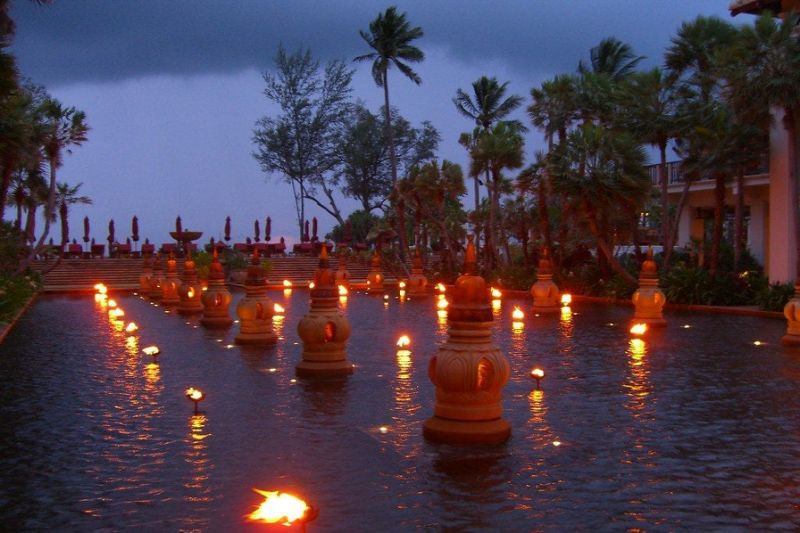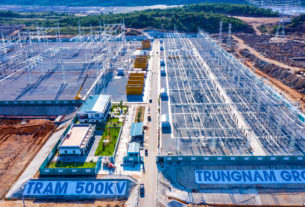 Minor International Vs. Marriott International Lawsuit in Thailand Shows Risks of Hotel Chain Consolidation
Minor International Vs. Marriott International Lawsuit in Thailand Shows Risks of Hotel Chain Consolidation
9 September 2019
In a case that underscores the challenges of a global hotel chain owning so many brands in a single market, Minor International is suing Marriott International for a “highly disappointing” performance of the JW Marriott Phuket Resort & Spa, which Minor fully owns and Marriott manages.
The lawsuit was filed on July 12 and a Thai court said on September 4 that the case can proceed.
The hotel suffered a 20 percent drop in gross operating profit in the first six months of 2019, compared to the same period last year, said the Bangkok-based hotel group, which is claiming an initial amount of $18.7 million (570.6 million baht) for the loss.
Though the amount being claimed is small, Minor, founded by American entrepreneur Bill Heinecke, is a major hotel owner, operator, and investor. If successful, other owners, for one, may use the same arguments against chains in the event their properties are not performing.
Minor alleged the decline in performance was “due in large part to a failure to drive business to the hotel and is further caused by recent changes to Marriott’s loyalty program, which has severely reduced revenues to the hotel for such business,” it said in a press statement.
“In addition, Marriott is itself increasingly competing directly with the JW Marriott Phuket hotel with its expanding portfolio of Marriott properties in Phuket and surrounding provinces. This raises serious concerns regarding conflicts of interest, brand saturation, dilution of Marriott-generated business, staff turnover and adequacy of regional resources to support the hotel,” Minor charged.
Through consolidation, Marriott currently manages 11 hotels in Phuket, the result of the recent acquisition binges by the world’s largest hotel chain. In essence, the properties compete among themselves, Minor alleges.
Marriott Asia-Pacific, when contacted by Skift, said the claims were “meritless” and that it would take “all steps necessary to protect our rights under the hotel agreements and vigorously defend against Minor’s claims.”
It said Minor and Marriott had a binding agreement to resolve any dispute regarding the hotel through Singapore International Arbitration Centre arbitration, refuting Minor’s assumptions that it lacked confidence in the Thai legal system.
“Marriott has been operating in Thailand for nearly 25 years and currently has 50 open hotels under its brands in Thailand today. We are committed to growing our business in Thailand and respect the Thai legal system,” its statement to Skift said.
“Marriott’s decision to honor its contractual commitment is not in any way a reflection on our faith in the Thai legal system or otherwise,” it reiterated. “Marriott is disappointed by Minor’s disregard of its contractual obligation to resolve disputes through arbitration as agreed and its contractual obligations of confidentiality.”
The global chain declined to comment further on Minor’s claims or the next steps it would take, saying it was bound by confidentiality obligations. Minor did not respond to Skift’s request for further details of its charges at press time.
Meanwhile, Minor said in the press statement that the hotel’s performance “continues to be highly disappointing” and that it remains “very concerned with Marriott’s performance and the effect of its increasing competitive activities on the JW Marriott Phuket.”
Minor said it is “confident” of the success of the claim.
Challenging Times
Marriott has been managing the hotel, which has 249 rooms and 12 suites, since its opening in December 2001.
But Phuket is undergoing challenging times. Arrivals at Phuket International Airport dropped 5 percent in the first seven months over the same period in 2018, according to Phuket-based hospitality consultancy, C9 Hotelworks.
Mainland China, the island’s largest source, hasn’t recovered since the deadly Phuket boat accident in July last year, shrinking to just over 1.2 million arrivals in the first seven months, compared with over 1.4 million last year.
Its second largest source, Russia, retracted 3 percent, while its third largest, Australia, was down 1 percent in the first seven months over the same period in 2018, C9 Hotelworks figures show.
The only real bright spot was a soaring number of Indian visitors to Phuket, which propelled India into the top five position for the first time. Arrivals from India from January to July jumped 354 percent to 186,360 over the same period in 2018.
South Korea rounded the top five international markets with a 3 percent gain.
C9 Hotelworks managing director Bill Barnett told Skift that comparing the first half of 2019 to the first half of 2018 was like comparing apples to oranges.
“The first half of 2018 was remarkable, then subsequently in July 2018 came the Chinese boat sinking and the market drifted,” he said.
That accident aside, China’s economic slowdown, the trade war, and the strengthened baht all contributed to the island’s hotels across all tiers experiencing what C9 Hotelworks said was “a historic low” in May 2019 in a few years..
C9 Hotelworks cited STR figures that Phuket hotels’ RevPAR (revenue per available room) for the period January to April dropped 12 percent over same period in 2018.
Asked who the luxury hotel market leader was in Phuket and whether a 20 percent drop in profit at the JW Marriott was surprising, Barnett said, “Phuket’s luxury market is extraordinary wide, anywhere from an ADR [average daily rate] of $800 to $900 a night at the Amanpuri and Trisara, down to $150-$200 at the institutional five stars.
“There is no doubt the first half of 2019 compared with same period in 2018 will show strong declines in most properties.”
Rate and performance drops do not depend on location or brand, but at the hotel level, he said.
“GOP [gross operating profit] is also a function of expenses. A 20 percent drop of GOP in any property would be alarming but again what’s inside that number, I’d imagine, may be linked to other charges as well,” said Barnett.
“Most hotel contracts call for International arbitration in cases of agreement disputes so this case is extraordinary in trying to use Thailand as a venue,” he added.
‘Perfect Storm’
Things look set to get worse for Phuket hotels. C9 Hotelworks in July warned of a “perfect storm” as supply and demand fundamentals become more unbalanced with 55 new properties with a total of 15,348 keys in the pipeline. This represents an 18 percent growth in the next five years to the existing supply of 84,707 keys.
Properties with an international brand affiliation will add 7,537 keys. A look at the consultancy’s list of pipeline hotels shows that Marriott is scheduled to add a couple more hotels, including a 600-key Four Points by Sheraton Patong Beach in first quarter 2020, and another JW Marriott in Chalong Bay, with 189 keys in fourth quarter 2020.
The existing JW is located on Mai Khao beach, about 17 kilometers from Phuket International Airport.
Marriott is also opening a 277-key Courtyard by Marriott in Chalong Bay in first quarter 2021.
Hotels in Phuket have also to contend with additional competition from homesharing accommodation and unregistered guesthouses.
“With the Phuket tourism market in a mature cycle, the massive hotel pipeline has raised oversupply concerns for both existing hotels and projects under development, with increasing stress on island infrastructure [being] inevitable,” said Barnett.
That Minor and Marriott have a love-hate relationship in Thailand is evident. Minor has also been vocal that hotel mega mergers are choking the life from Asia’s hospitality industry.
The St. Regis Bangkok, including the residences from the 25th to 45th floor of the hotel, is also owned by Minor.
But as it grows rapidly, only a few hotels in the Minor portfolio are now outsourced. Apart from the St. Regis in Bangkok and the JW in Phuket, it partners Four Seasons for its hotels in Chiang Mai and Samui, Thailand, and Radisson Hotel Group for its Radisson Blu in Mozambique.
Minor now boasts a total of 523 hotels in 53 countries across Asia-Pacific, the Middle East, Africa, the Indian Ocean, Europe, South and North America, most of them under Anantara, Avani, Oaks, Tivoli and NH Collection.
Source: https://finance.yahoo.com/news/minor-vs-marriott-lawsuit-thailand-123028616.html

